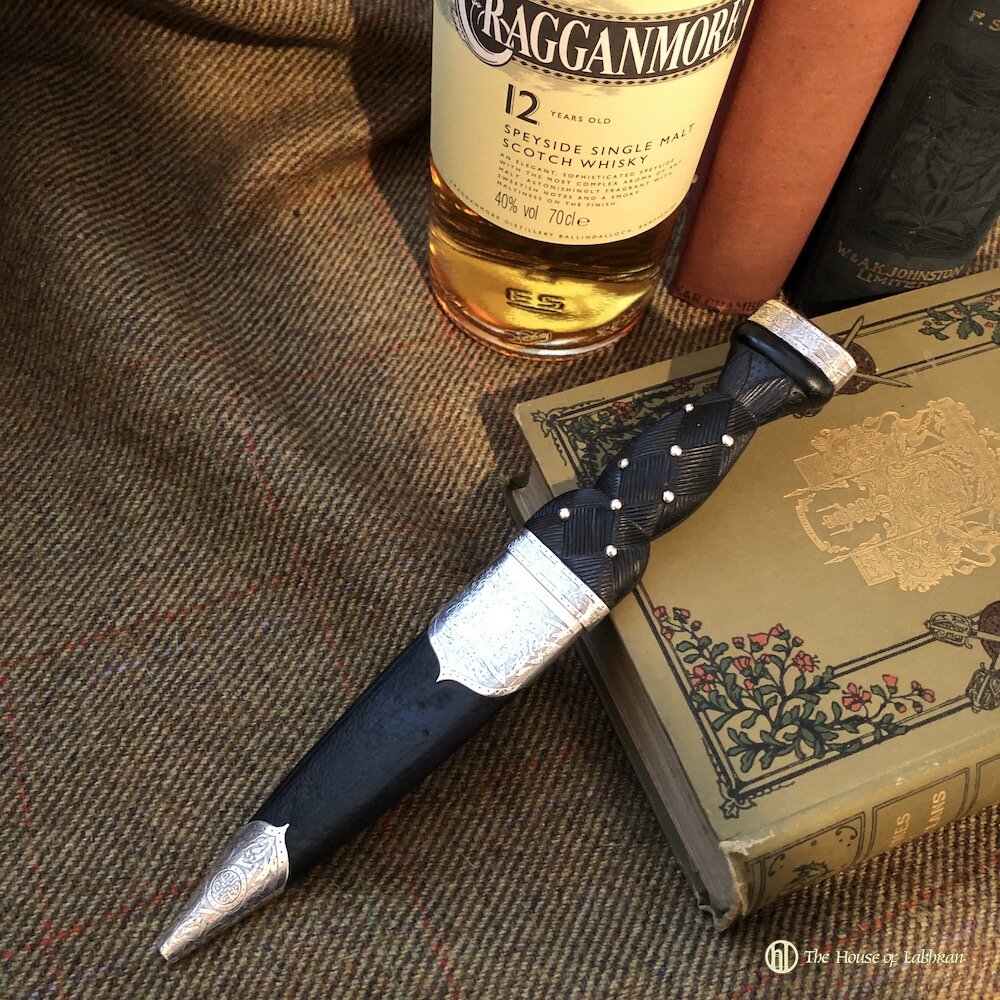Antique 1880’s Victorian Scottish Silver Sgian Dubh
Antique 1880’s Victorian Scottish silver sgian dubh with rock crystal stone
The passion for antique and vintage Scottish sgian dubhs is something we share with many of our clients. So we are always on the look out for fine vintage pieces. A recent find is an antique 1880’s Victorian Scottish silver sgian dubh with rock crystal stone.
The hilt is carved in ebony or blackwood with a basket weave design and studded with eight silver domed pins. The pommel is set with a beautifully cut rock crystal stone in a Celtic knot engraved silver mount. At the base of the hilt it has a silver mount with the same ornate design as the pommel.
The black leather covered scabbard has silver mounts with the engraved Celtic knot design surrounding a circular cartouche.
Like some locally made ( provincial ) sgian dubhs of the time they were not always hallmarked. Although the sgian dubh tests positive for silver on the mounts, it has no marks on either the silver mounts or steel blade.
The blade has a blood grove on both sides and a faceted top edge along half its length and is in good used antique condition.
The sgian dubh in it’s scabbard measures approx. 8.5” (21.5cm)
House of Labhran Fine Scottish Silver & Vintage Sgian Dubhs
We have a passion for fine antique and collectible sgian dubh’s and Highland dirks. We source antique Jacobite styles of the 18th century, high Victorian styles and regimental patterns of WW1 – WW2. Our sgian dubh and dirk range make wonderful addition to any Highland dress collection.
Our range of fine hallmarked sterling silver skean dubh’s made by the Highland regimental silversmith and Royal silversmiths Hamilton & Inches in Edinburgh, Scotland. We can engrave many of these skean dubhs for presentation gifts.
Vintage antique Sgian Dubhs – Scottish sgian skean dubhs from Scotland – The Gaelic sgian dubh meaning “black knife”, where “black” may refer to the usual colour of the handle of the knife. It is also suggested that “black” means secret, or hidden, as in the word blackmail. This is based on the stories and theories surrounding the knife’s origin and the meaning of “Dubh” in Gaelic, in particular those associated with the Highland custom of depositing weapons at the entrance to a house prior to entering as a guest. Despite this practice, a small twin edged-dagger, (‘Mattucashlass’), concealed under the armpit, combined with a smaller knife, (‘Sgian dubh’).





